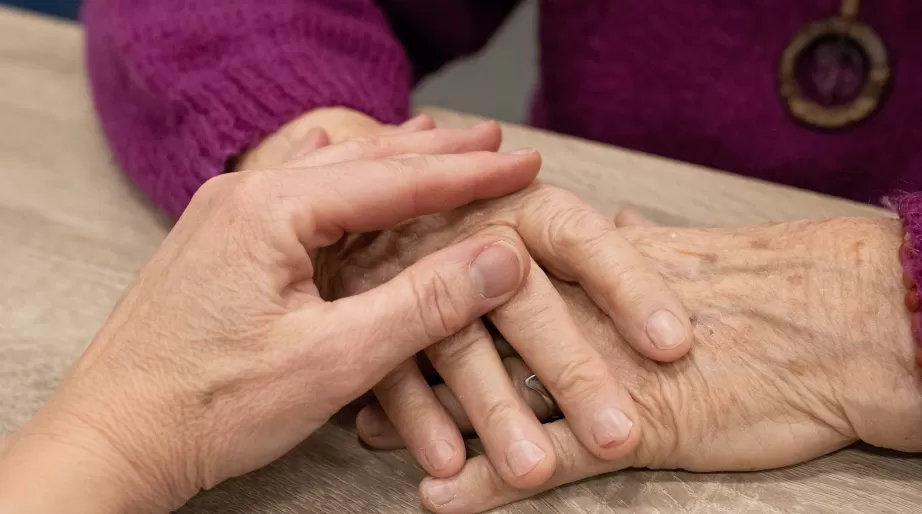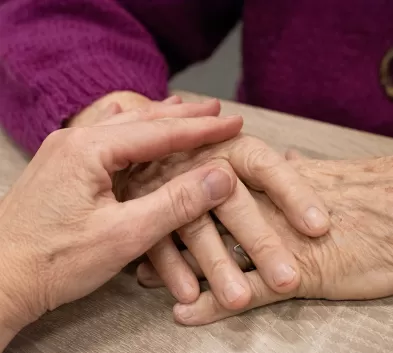The Dos and Don'ts of Supporting Someone Dealing with Cancer


A cancer diagnosis is a terrifying uncertainty that sends many people and their loved ones on an emotional rollercoaster.
Given its serious nature, it’s no surprise most of us find it difficult to approach the subject. Most of the time, we end up feeling awkward and confused about how to be there for cancer-stricken friends and family, as well as their caretakers.
Here’s a quick guide to get you started on offering unconditional support and love in a helpful and sensitive way:
DON’T: Avoid The Topic
"When in doubt, stay silent” — that seems to be the mantra for a lot of people, who shy away from speaking directly about uncomfortable topics such as cancer.
However, acting like it didn’t happen or avoiding the subject may reveal your discomfort and give the impression that you don’t want to be involved. Ultimately, this can backfire, isolating someone even more.
Acknowledging the situation is a good way to let someone know you are in their corner and ready to figure it out with them. One possible way is saying something with empathy to start the conversation. For example, “hey, I’m so sorry this has happened to you”.
DO: Research

Cancer has a ton of ramifications, which are bound to be overwhelming for a patient and his or her caretakers. So, one quiet yet powerful way of lending support is to keep yourself informed.
Research and read up as much as possible on the type of cancer involved, treatment options, side effects and ways of managing it. This enables you to have effective and productive conversations with someone about his or her illness, without having to pause the discussion to have things explained to you.
On that note, don’t let that stop you from clarifying things you’re uncertain about! The more you understand the situation, the better you’ll be able to help.
On that note, do be more mindful not to be too pushy in offering your opinions. With so many different factors and issues to consider, insisting on your viewpoint can create more stress for patients and their caretakers. Approach it gently and helpfully by offering your views as possible suggestions.
DON’T: Be Overly Positive
This may sound like a bad idea but constant optimism isn’t always what’s best for someone dealing with cancer. In fact, there’s a term for this: toxic positivity.
Clichés and platitudes such as “Look on the bright side” or “Just think happy thoughts” can sometimes pressure someone into having to suppress negative feelings and be positive. However, it’s important to acknowledge and allow someone to express and process their bad thoughts and feelings. Even admitting this aloud with them (for example, “This really sucks” or “I can’t imagine how hard this is for you”) can be a form of showing support and a genuine attempt to understand.
Let the person know that if they need to vent or have a good cry or are simply feeling low, you are available with a listening ear and no judgment.
DO: Support Caretakers
A cancer diagnosis is a crisis not just for the patient, but for his or her caretakers and loved ones too. In this feature — done in partnership with Rice Media — we take a look at a real-life example of how being a caretaker can be a draining and stressful process.
Offer the caretakers some reprieve by checking in to offer your support. This can be in the form of practical errands such as helping to cook or shop for groceries. It can also be done with words of appreciation and encouragement.
Another great way to help caretakers is to direct them to support groups, where they can meet fellow caretakers. National Cancer Centre Singapore hosts a wide variety of support group sessions for people in various circumstances, including caregiving here.
DO: Check In Often
A guide can only get you so far. At the end of the day, different people have different wants and needs. Checking in on your friend and letting him or her know you are always there can mean the world to that person. “What would you like help with?” can be the first step in connecting with someone to see how you can support.
Do take the initiative to connect at regular intervals instead of giving a one-time “let me know if you need anything" — this puts the ball in the person’s court, and he/she may feel bad or embarrassed about troubling you. Being a little proactive goes a long way.
Battling cancer can be a scary and uncertain journey for anyone, but you can help make it better in your own way. It’s also important for you, the patient and caretakers to devote your energy and time to treatment and staying strong instead of worrying about the financial cost.
Take control of your protection, as well as your loved ones’, against this eventuality with CancerCare Plus. An affordable and easy-to-apply standalone plan, CancerCare Plus pays up to $100,000 in the event of cancer. Find out more here.


